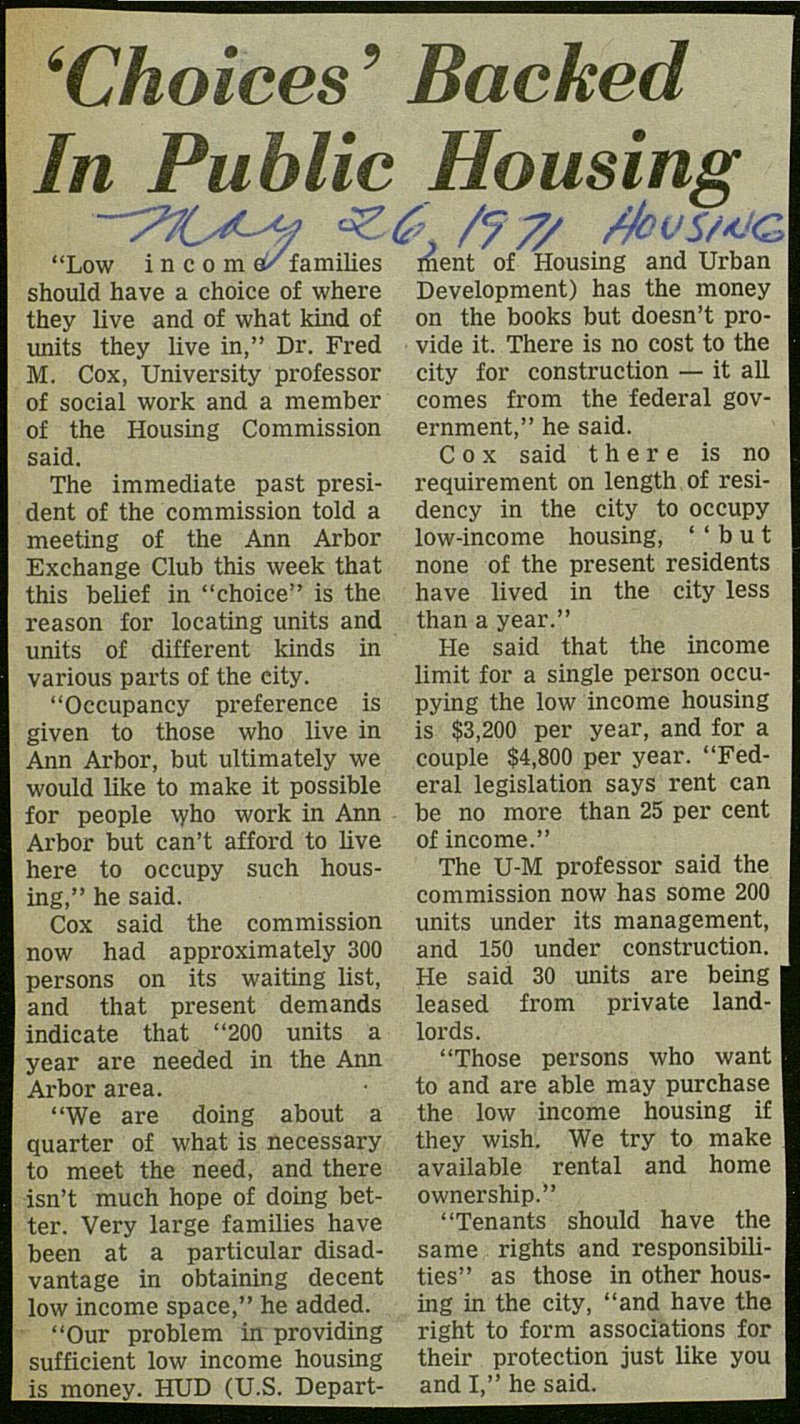'Choices' Backed In Public Housing

"Low income families should have a choice of where they live and of what kind of units they live in," Dr. Fred M. Cox, University professor of social work and a member of the Housing Commission said. The immediate past president of the commission told a meeting of the Ann Arbor Exchange Club this week that this belief in "choice" is the reason for locating units and units of different kinds in various parts of the city. "Occupancy preference is given to those who live in Ann Arbor, but ultimately we would like to make it possible for people who work in Ann Arbor but can't afford to live here to occupy such housing," he said. Cox said the commission now had approximately 300 persons on its waiting list, and that present demands indicate that "200 units a year are needed in the Ann Arbor area. "We are doing about a quarter of what is necessary to meet the need, and there isn't much hope of doing better. Very large families have been at a particular disadvantage in obtaining decent low income space," he added. "Our problem in providing sufficient low income housing is money. HUD (U.S. Department of Housing and Urban Development) has the money on the books but doesn't provide it. There is no cost to the city for construction - it all comes from the federal government," he said. Cox said there is no requirement on length of residency in the city to occupy low-income housing, ''but none of the present residents have lived in the city less than a year." He said that the income limit for a single person occupying the low income housing is $3,200 per year, and for a couple $4,800 per year. "Federal legislation says rent can be no more than 25 per cent of income." The U-M professor said the commission now has some 200 units under its management, and 150 under construction. He said 30 units are being leased from private landlords. "Those persons who want to and are able may purchase the low income housing if they wish. We try to make available rental and home ownership." "Tenants should have the same rights and responsibilities" as those in other housing in the city, "and have the right to form associations for their protection just like you and I," he said.